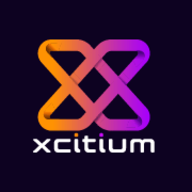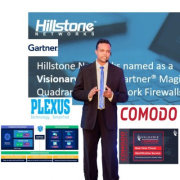

Fortinet FortiClient and Comodo Advanced Endpoint Protection are competitive products in endpoint security. Comodo Advanced Endpoint Protection seems to have the upper hand due to its comprehensive features and long-term ROI.
Features: Fortinet FortiClient is recognized for its robust firewall, VPN capabilities, and secure browsing features. Comodo Advanced Endpoint Protection shines with its containment technology, advanced threat protection, and centralized management.
Room for Improvement: Users of Fortinet FortiClient suggest enhancing malware detection rates, reporting capabilities, and addressing concerns regarding core security features. Comodo Advanced Endpoint Protection users suggest potential improvements in the integration process with other tools, more efficient resource usage, and addressing some complexities in configurations.
Ease of Deployment and Customer Service: Fortinet FortiClient offers a straightforward deployment model appreciated for its simplicity. Their customer service is effective and responsive. Comodo Advanced Endpoint Protection's deployment can be more complex due to its advanced settings and configurations. Their customer service is highly supportive and helpful.
Pricing and ROI: Fortinet FortiClient is seen as cost-effective with a good ROI, making it a budget-friendly option. Comodo Advanced Endpoint Protection, despite higher initial costs, offers better value over time due to its higher feature efficacy and long-term ROI.
Customer support is generally satisfactory but could be improved, especially in terms of response time.
They initiate the troubleshooting process quickly and resolve issues in a timely manner.
Technical support can be logged on Fortinet's support portal.
The technical support from Fortinet is rated as nine out of ten.
We can add more licenses and Fortinet tokens, demonstrating excellent scalability.
The scalability could use improvement as you need to ensure that routes and policies are aligned, which can be complex.
I hope Fortinet will start an insider developer program where professionals can provide feedback on new releases to ensure improvements.
The stability of Comodo Advanced Endpoint Protection is rated at ninety-five to ninety-seven percent.
Its stability level is excellent.
Comodo Advanced Endpoint Protection could improve by extending its auto containment feature to Mac and Linux systems since it currently only supports Windows.
Fortinet frequently releases updates without thorough testing.
FortiClient needs improvement in restricting user information and ensuring more secure customer data to better protect source code and reduce the risk of security breaches.
There are complexities with the scalability part, particularly with routing and policy alignment.
Pricing is competitive and considered average compared to other solutions.
FortiClient is a value-for-money product and is not considered expensive compared to similar products on the market.
Recently, Fortinet has increased prices for its products.
Justifying the price to clients can be difficult.
It includes an auto containment feature, ensuring files and folders remain secure.
The most valuable feature of FortiClient is its high security level.
We appreciate its VPN capabilities and the features that offer extra security functionalities like antivirus and malware scanning.
It enhances our business by allowing our agents to work remotely, which we had not been able to do before.


Comodo Advanced Endpoint Protection (AEP) delivers patent-pending auto-containment, where unknown executables and other files that request runtime privileges are automatically run in a virtual contain that does not have access to the host system's resources or user data.
FortiClient is a fabric agent that delivers endpoint protection, endpoint compliance, and secure access in a single, lightweight, lightweight client, providing visibility, information, and control to your endpoints. In addition, it enables secure, remote connectivity to the security fabric. It also integrates network and endpoint with segmentation and automation. FortiClient enables unified endpoint awareness by sharing endpoint telemetry with the security fabric. It is compatible with third-party EDR (endpoint detection and response and anti-malware solutions.
The FortiClient fabric agent can:
• Report on the status of a device, including firmware version and applications running.
• Send all suspicious files to a fabric sandbox.
• Enforce USB control, application control, URL filtering, and firmware upgrade policies.
• Provide application firewall service and malware protection.
• Enable devices to connect securely to the security fabric over either ZTNA tunnels or VPN (IPsec or SSL), both encrypted. The connection to the security fabric can be either a SASE service or a FortiGate next-generation firewall.
You can purchase FortiClient with one of three levels of capability:
Zero Trust security - The ZTNA edition enables both VPN and ZTNA encrypted tunnels, as well as USB device control and URL filtering.
Endpoint security - The EPP/APT edition adds AI-based NGAV (next-generation antivirus), application firewall, endpoint quarantine, and support for cloud sandbox.
Cloud-based endpoint security
Benefits and Features
• Fabric agent leverages integrations and provides telemetry information to the rest of the Fortinet security fabric.
• SAAS control and web/content filtering
• Dynamic access control helps with automation and simplifies compliance.
• Software inventory management enables visibility as well as management of licenses.
• Automated response detects and isolates any endpoints that may be compromised.
• ZTNA delivers better remote access and consistent application access policies
• Managed endpoint security services remotely assist with setup, configuration, deployment, vulnerability monitoring, and overall monitoring of endpoint security.
Reviews from Real Users:
PeerSpot users like that FortiClient is easy to use and integrates well with other solutions. They also appreciate the richness of its features and find it to be inexpensive in comparison to other products that require separate purchases for separate features.
We monitor all Endpoint Protection Platform (EPP) reviews to prevent fraudulent reviews and keep review quality high. We do not post reviews by company employees or direct competitors. We validate each review for authenticity via cross-reference with LinkedIn, and personal follow-up with the reviewer when necessary.